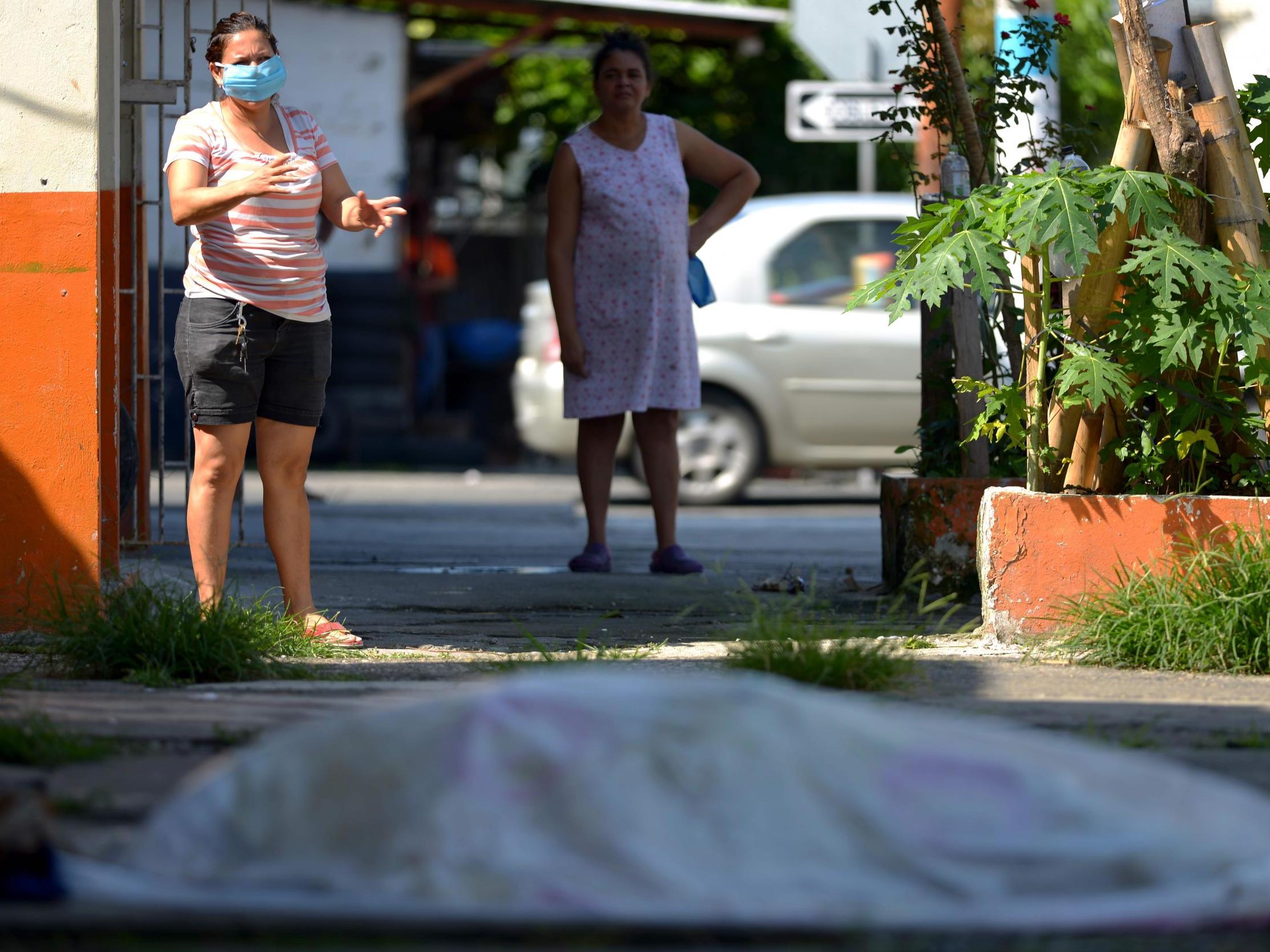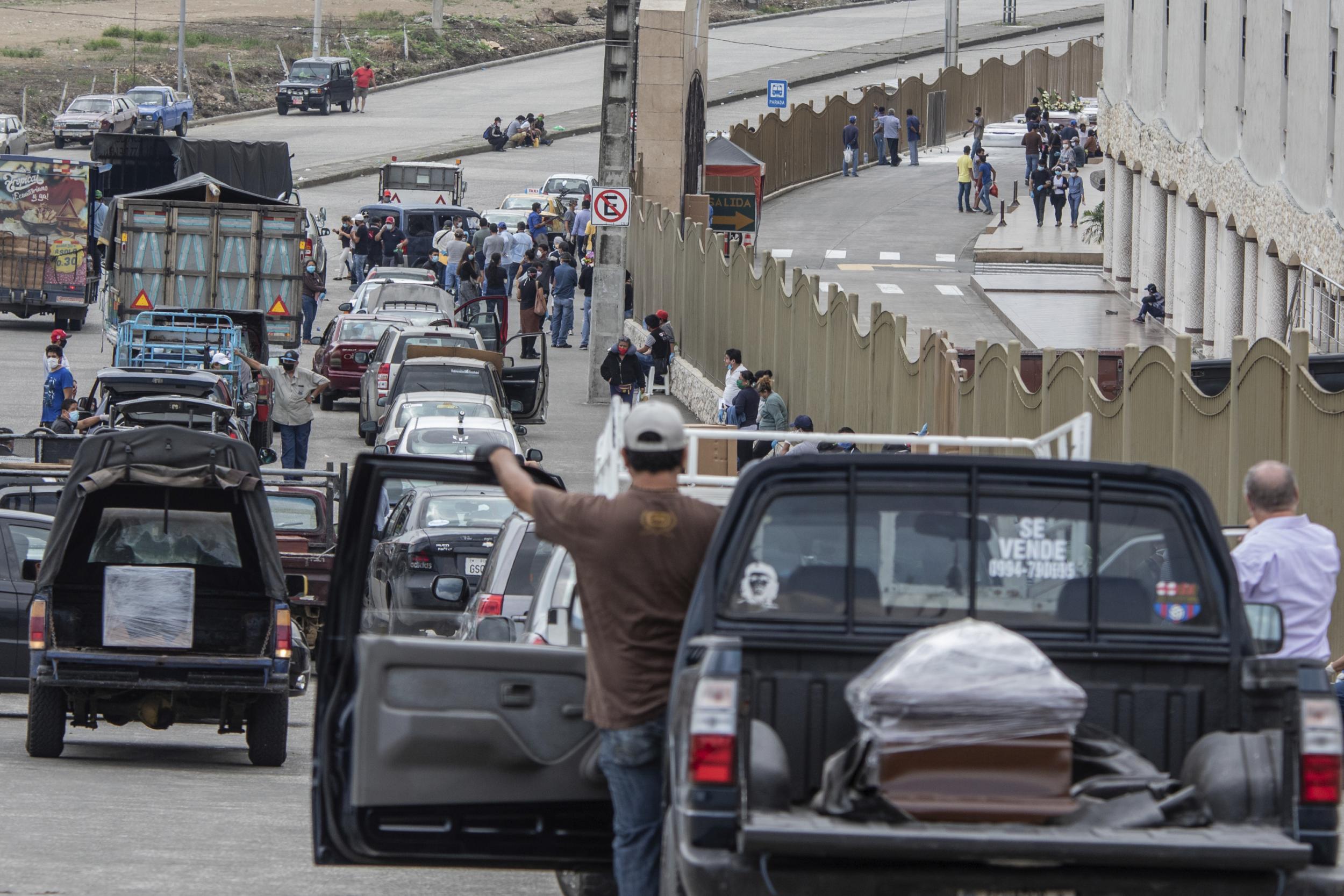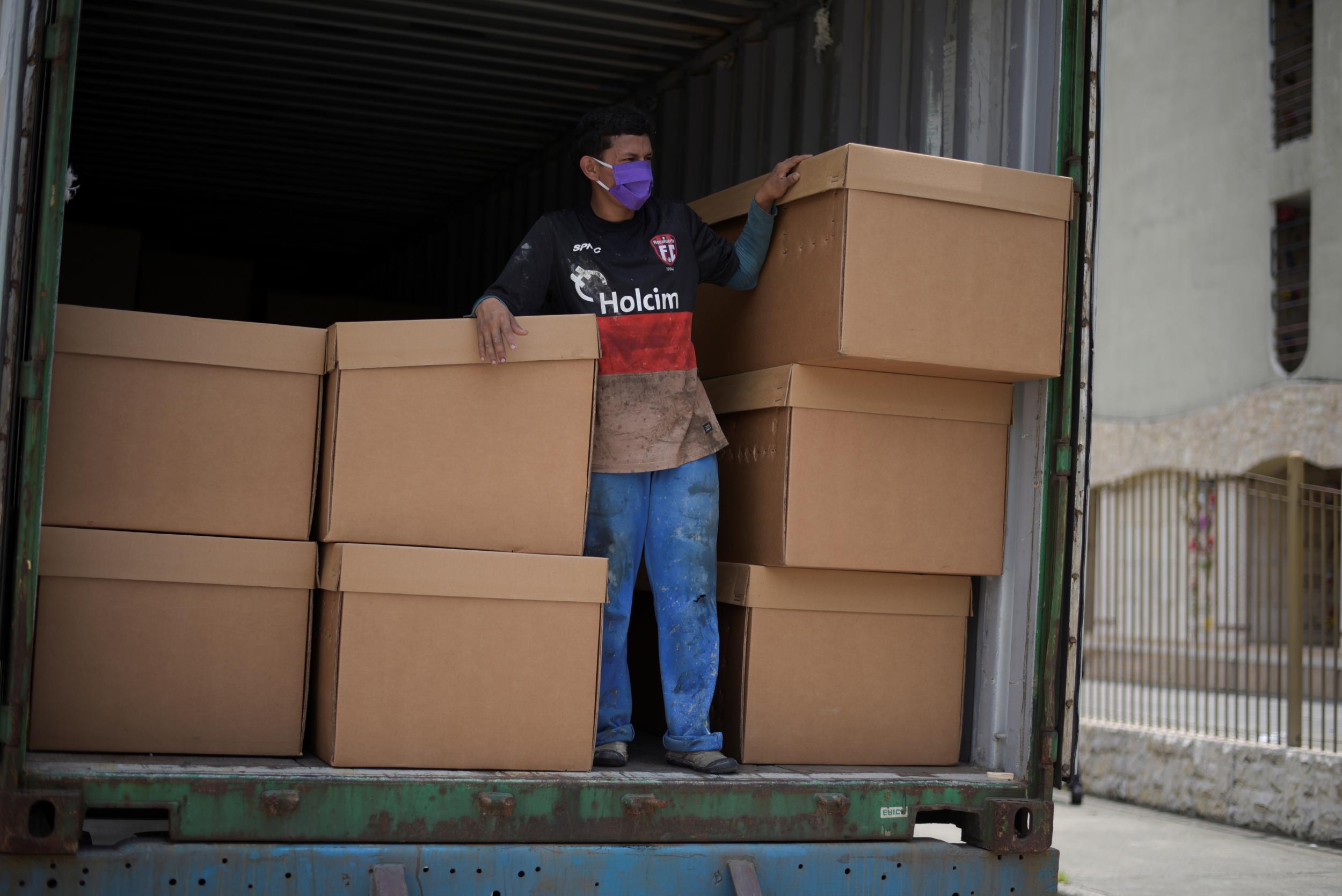‘Smell flowed from him’: Why bodies are being left for days on the streets of coronavirus-hit Guayaquil
Ecuador’s most populous city is ‘a window to the future’ of Latin America, campaigners warn


Your support helps us to tell the story
From reproductive rights to climate change to Big Tech, The Independent is on the ground when the story is developing. Whether it's investigating the financials of Elon Musk's pro-Trump PAC or producing our latest documentary, 'The A Word', which shines a light on the American women fighting for reproductive rights, we know how important it is to parse out the facts from the messaging.
At such a critical moment in US history, we need reporters on the ground. Your donation allows us to keep sending journalists to speak to both sides of the story.
The Independent is trusted by Americans across the entire political spectrum. And unlike many other quality news outlets, we choose not to lock Americans out of our reporting and analysis with paywalls. We believe quality journalism should be available to everyone, paid for by those who can afford it.
Your support makes all the difference.A bus driver from Guayaquil – Ecuador’s most populous city – was told by his landlady that there was a bad smell coming from one of the apartments. With the other tenants, he knocked down the door and found a dead body. “Due the state of decomposition, a few days must have passed ... no one has returned to that house. Not even the relatives of the deceased man,” the driver – who wishes to remain anonymous – says.
Ecuador has nearly 4,000 confirmed cases of Covid-19, with most of the country’s deaths located in the Guayas province. With an exhausted healthcare system, people are dying outside of hospitals in their homes – both from coronavirus and other conditions – forcing families, neighbours and friends in this crowded city to leave bodies on the streets.
Tatiana Bertolucci, regional director of the international NGO Care, tells The Independent at least 100 bodies have been collected by police in the last week, with activists on the ground telling her it could be as many as 300. Bertolucci says the region’s “health systems are collapsed” and there are not enough resources to collect the dead, or even enough coffins. “People are scared that having the bodies inside of the houses could contaminate them ... Guayaquil is a hot city so you might imagine what that means for decomposition and the seriousness of it.”
Lenny Quiroz, national secretary of the National Union of Domestic Workers, knows of “many, many cases” of bodies being left for days in houses and on the streets. “I know a case of someone very close. They had him for five days at home, and since we live in a condominium, people already wanted to take him out on the street due to the fear and smell that flowed from him.” Quiroz says she knows of other instances where bodies have been left for up to eight days. “It is a nightmare from which we do not finish waking up.”
The problem has become so severe Guayaquil city officials have begun distributing cardboard coffins to “provide a decent burial to people who died during this health emergency”. As many other cities have been forced to do, temporary morgues are being set up, with city mayor Cynthia Viteri announcing that crates are being supplied to contain some of the dead.
The idea of your dead relatives and neighbours being left in the street seems almost medieval, but this is not the first time the 21st century has dealt with such horror. Former White House advisor Dr Saralyn Mark, who is working with various departments of health around the US to fight Covid-19, says the case of Ecuador “reminds me of some of the scenes we saw in the early days of Ebola when cadavers were being left on the street”. As the world races to deal with the pandemic, with many nations now managing to flatten the curve, others are left asking not only how to prevent and treat, but also what to do with the dead.
Although the death rate in Ecuador remains between 200 and 300, activists warn of a worrying domino effect emblematic of a viral pandemic. Lia Burbano, an LGBT+ activist from Guayaquil, says: “Each time those killed by the virus are closer to you and your family. This has unleashed a social panic, a general fear of not wanting to touch corpses and leave them abandoned outside the houses.”
Burbano is among those frustrated at the lack of support given to the struggling community. “We feel annoyed with our local authorities and abandoned by the central government. They have made us feel ‘guilty’ of this horror and this has generated even greater resistance among the people by not wanting to submit to the government’s provisions to stop the contagion.”
Union secretary Lenny Quiroz says: “For me, as a leader, it is much more because I cannot go out, I cannot help. It’s like being tied up and it gives me a lot of despair. No one wants to live in this city... you fight between terror and your commitment.”
Guayaquil had the first confirmed case of coronavirus in Ecuador on 29 February, with measures of social distancing being enforced more than two weeks later. The densely populated city has high levels of poverty; in many instances multiple people live in a very small space. More than 50 per cent of the population work in informal jobs, Ms Bertolucci of Care says, meaning many of those being told to stay at home are losing their livelihoods. Even being able to wash your hands is a luxury for many, with 30 per cent of the city having no access to clean water. If current measures continue, people will be faced with the decision of whether to go back to work and risk infection, or stay at home and risk having enough money and food to survive.
Access to adequate healthcare is a huge issue, with “queues and queues in hospitals to remove the bodies”, according to Ms Quiroz. “Sometimes you get sick waiting ... Everything is mixed. There is a total collapse.” Such chaotic health systems put not only patients at risk, but also already strained medical workers.

In such uneasy times and “because the curve is still going, there is the possibility of social unrest and conflict”, Ms Bertolucci says.
A retired man living in the city, who wishes to remain anonymous, says people have begun burning tyres to alert authorities to dumped bodies. One instance happened a block away from his house. After the incident, with strict curfews in place in the area, he says he was told “that army soldiers shot rubber bullets at people from Ciudad de Dios, because they were on the street”.
Among the most vulnerable in the city are Venezuelan migrants, who fled the ongoing political crisis of their own country. As coronavirus spreads, shelters are having to close their doors. Many Venezuelans arrived in Ecuador with poor health, and dire financial circumstance is leaving a lot of this population out on the streets. “These people are in a crisis where they didn’t choose nationalities,” Ms Bertolucci says.

Tensions run high, with the possibility of unrest exacerbated. Explaining there are “issues of inherent discrimination”, Dr Mark says: “Sometimes people are concerned that people that come into their land are bringing infection, so that generates fear.”
This is one city, in one country, in a very large and diverse continent, but Ecuador is not alone in many of the hurdles it faces in beating Covid-19. Ms Bertolucci warns what we are currently seeing in Guayaquil could soon happen in other Latin American countries, such as Honduras and Guatemala. “As soon as the curve starts increasing we are going to see the failure of the basic services in other countries. It is a window to the future.”
Although local activists and organisations operating in the region are calling out for support from the international community, they remain hopeful in the fight. “The only thing that sustains me and gives me strength is when I can help people who are sick and their families, when we can get someone out, when we manage to give strength to fight,” Ms Quiroz says. “We see people recovering, and that injects me with energy. You have to keep fighting, give yourself the strength.”